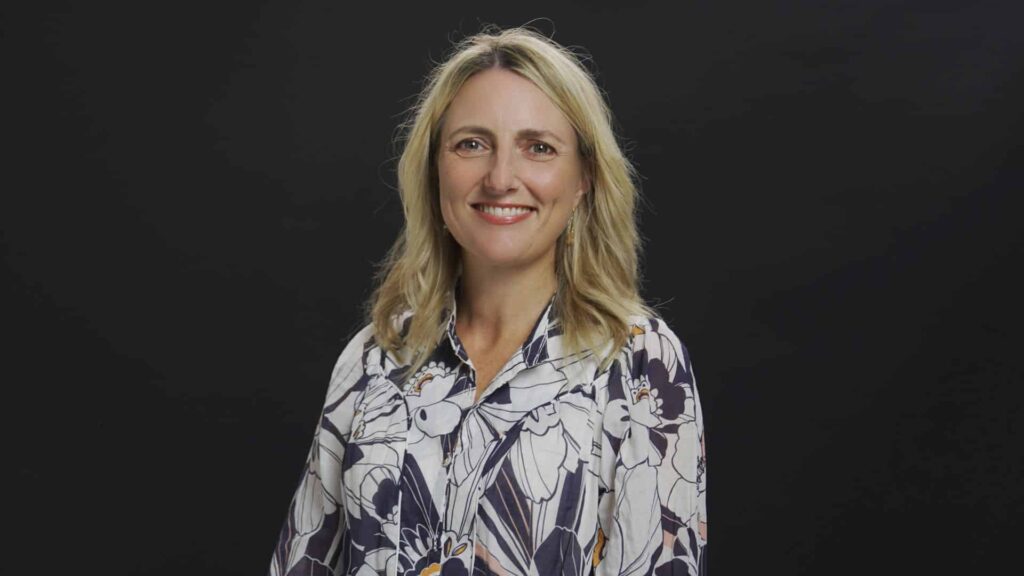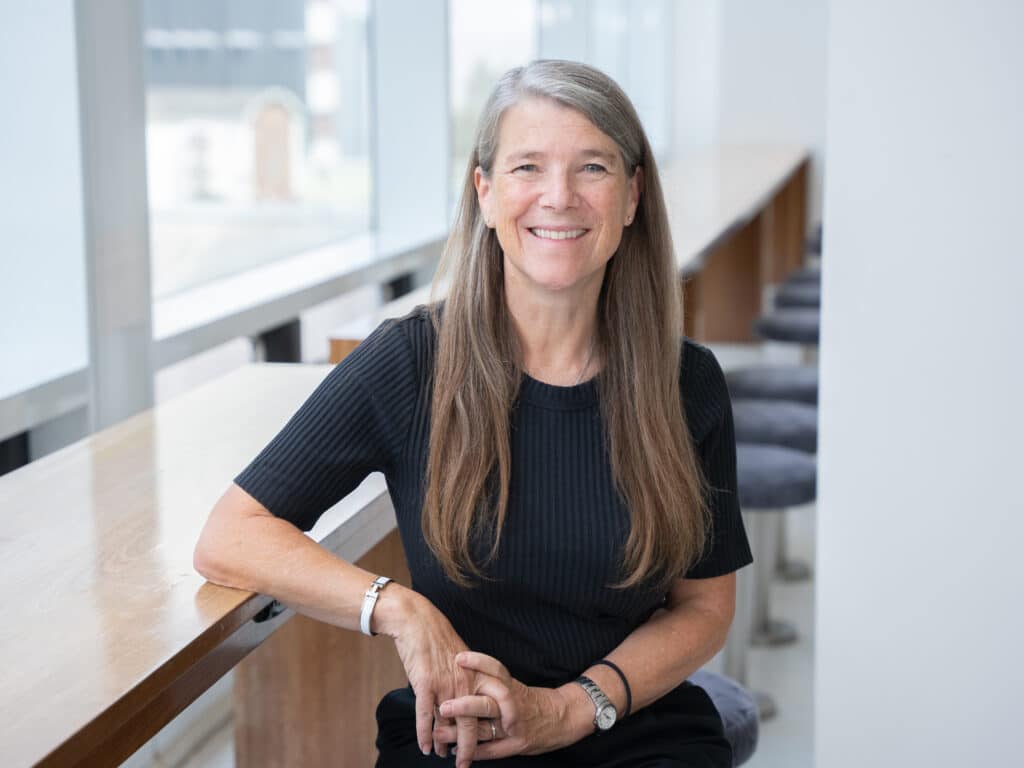Workplaces that want to be inclusive must also navigate the very different viewpoints people bring to work, especially regarding complex political and global issues. We’ve worked with leadership experts to ask what workplaces can do to create safe and constructive spaces, thanks to our partnership with Family Friendly Workplaces.
Workplaces offer a unique opportunity for people from different backgrounds, with different experiences and with different worldviews to come together.
Most of the time, says Dr Juliet Bourke, professor at the UNSW Business School, the coming together of people with varied perspectives can become a “safe space” from the world.
“People are compelled to work together, and workplaces take on the obligation to create the opportunities for people to listen and learn from each other… they’ve actually got a safe space to speak their truth,” Dr Bourke says.
But there is no doubt that society and politics is becoming more and more polarised, and Dr Bourke says there is a risk of replicating the polarisation of the outside world in the workplace.
“On the other hand, you can entrench external polarisations, if a workplace shuts down the ability for one side to speak its truth.”
Emma Walsh, the founder of social impact workplace certification program Family Friendly Workplaces, says it’s up to diverse, inclusive leaders to promote respect in the workplace, especially during times of complexity and uncertainty.
“Leaders who embrace inclusion become champions for change, inspiring others to follow suit, creating a more inclusive and positive workplace and impacting the mental health, safety and wellbeing of employees,” Walsh says.
A humanitarian crisis in the Middle East, a failed referendum, a global pandemic, climate change, gender equality, cost-of-living…with so much going on in the world, it’s hard to keep political conversations out of the workplace.
Promoting respect in the workplace is essential during periods of complexity and uncertainty, says Emma Walsh, CEO and Founder of Family Friendly Workplaces

But how do employers navigate polarising views around such conversations, and prevent such differences from hurting team members and damaging relationships?
What it really means to bring yourself to work
So often we’ve heard about the need to bring your whole selves to work, with employers aiming to promote the safe spaces they provide for doing so.
As Dr Bourke says, this idea is still important, even during tense political and global moments.
“Workplaces need to enable that to happen, because the more you treat people as robots, the more they see themselves as resources,” she says.
But “bringing yourself to work” is part and parcel of bringing your identity, your view of yourself and the view of the world around you. That’s why it’s impossible to keep politics and political conversations out of work.
“You can’t have it both ways as a workplace,” Dr Bourke says.
“If you want a person to bring more of themselves and more of their energy and effort to the work tasks in front of them, more of their creativity, more of their connections, then you do need to treat them as a whole person.”
Of course, personalities and perspectives are bound to clash in a workplace, especially in times of uncertainty.
The art of the difficult conversation is more about trying to have a ‘listening conversation’, says Dr Juliet Bourke, professor at the UNSW Business School

A 2022 study in the US, surveying 500 workers, found one in four respondents had personally experienced differential treatment because of their political views or affiliation. One in five workers said they had been treated poorly by their co-workers as a result of their political views.
Nearly half of the respondents (45 per cent) said they had experienced political disagreements in their workplace.
However, rather than an argument, trying to persuade others to agree with you, Dr Bourke says the “art of the difficult conversation” is more about a “listening conversation”.
“Being heard doesn’t mean agreement – it means being understood,” she says.
“You need to have difficult conversations about many things in a workplace, so this is just building a muscle as to how to have those conversations and building the muscle for how leaders need to create a collaborative work environment.
“The conversation has to be constructive. You might not agree with what that person says, but you at least need to work towards understanding what that person is saying.”
Leadership
Workplaces must be a safe space for these constructive, respectful conversations to take place, and CEO of Parents At Work Emma Walsh says that starts with inclusive leadership.
“Leaders who embrace inclusion become champions for change, inspiring others to follow suit creating a more inclusive and positive workplace and impacting the mental health, safety, and wellbeing of employees,” she says.
“Inclusive leaders are critical to success – they unlock individual potential, enhance the collective power of teams and support your organisation’s ability to innovate and grow.” Despite the clear return on investment, workplace data captured through Family Friendly Workplaces benchmarking reveal that there’s a learning gap, with most employers self-reporting a lack of training and development on offer for their leaders.
“Leaders set the tone in workplaces, and are at the coalface of workplace inclusion. If leaders aren’t adequately equipped to address the challenges and mitigate risks, it can undermine organisation-wide efforts to promote inclusion; the ability to attract and retain talent and to ensure a safe workplace,” says Walsh.
The latest Edelman Trust Barometer revealed 75 per cent of Australian workers want their CEOs to respond to discrimination in the workplace, and 69 per cent will not consider working for an employer unless they have a strong social impact.
But Shirley Chowdhary, board director and executive leader, said it can be challenging for leaders to address and manage these conversations.
“In a world where views are increasingly divisive and polarised, global issues have reached our shores, our kitchens and our water coolers,” Chowdhary says.
Companies should proactively remind staff about the need for respectful debate, says board director Shirley Chowdhary.
“In this environment where many people are carrying deep distress and hurt related to family members and loved ones, leaders can find it difficult to create safe spaces for their people at work or in online work forums.”
Some steps that Chowdhary suggests for companies to implement include reinforcing behaviour policies regarding workplace bullying, social media, sexual harassment and discrimination.
“Companies should be proactively reminding staff about the need for respectful debate that recognises each other’s boundaries, views, faiths and cultures,” she says.
“Providing access to EPA or counselling and providing the opportunity to work from home may also be necessary.”
During Australia’s recent referendum on the Indigenous Voice to Parliament, Chowdhary was part of several boardroom meetings discussing how to better support their First Nations employees. She has seen these boardroom discussions continue amidst the humanitarian crisis in Gaza, the war in Ukraine and other international crises.
“We ensured that everyone knew that they had access to cultural leave, EPA programs and the space to work from home if they felt safer or more comfortable to do so,” Chowdhary says.
“Our leadership has to focus on the wellbeing of our people as much if not more than it has to focus on productivity. Looking after our people is the foundation to a healthy and safe workplace and has to be top of mind for leaders.”
Cancel culture
The polarisation of society and politics is largely due to the way we consume media online through social media platforms and algorithms.
The simultaneous rise of polarisation and “cancel culture” troubles Dr Bourke, particularly its impact in the workplace.
“I’m quite concerned around the way that cancel culture in the US is being imported into Australia, meaning that people who perceive they have a minority viewpoint aren’t able to speak up easily,” Dr Bourke says.
But it’s not just people who identify with extreme polarised opinions – it’s people in the middle that are also impacted.
“People who have a moderate viewpoint don’t speak up either because they fear losing their tribe,” she says.
“If there are two polarisations and they’re in the middle, the moderates don’t want to lose their affiliation with a political group.”
Rather than emulating polarised algorithms online, “listening conversations” at work allow all sides to be heard and understood.
“Workplaces have a unique opportunity to shape the world around them and to reset expectations as constructive conversations, rather than polarised conversations,” Dr Bourke says.
“Inclusive leaders play a pivotal role, and part of that role is role modelling what it means to not play favourites, to not amplify one person’s political point of view and downplay another person’s political point of view.
“This is unchartered territory in some ways for people, and the company values that sit on the wall, things like integrity and collaboration, now they actually have to mean something.”
As such, investing in developing inclusive leadership capability to equip managers to navigate and respond to their teams’ diverse beliefs and needs is likely to remain a high priority on the executive and board agenda for 2024,” says Walsh.